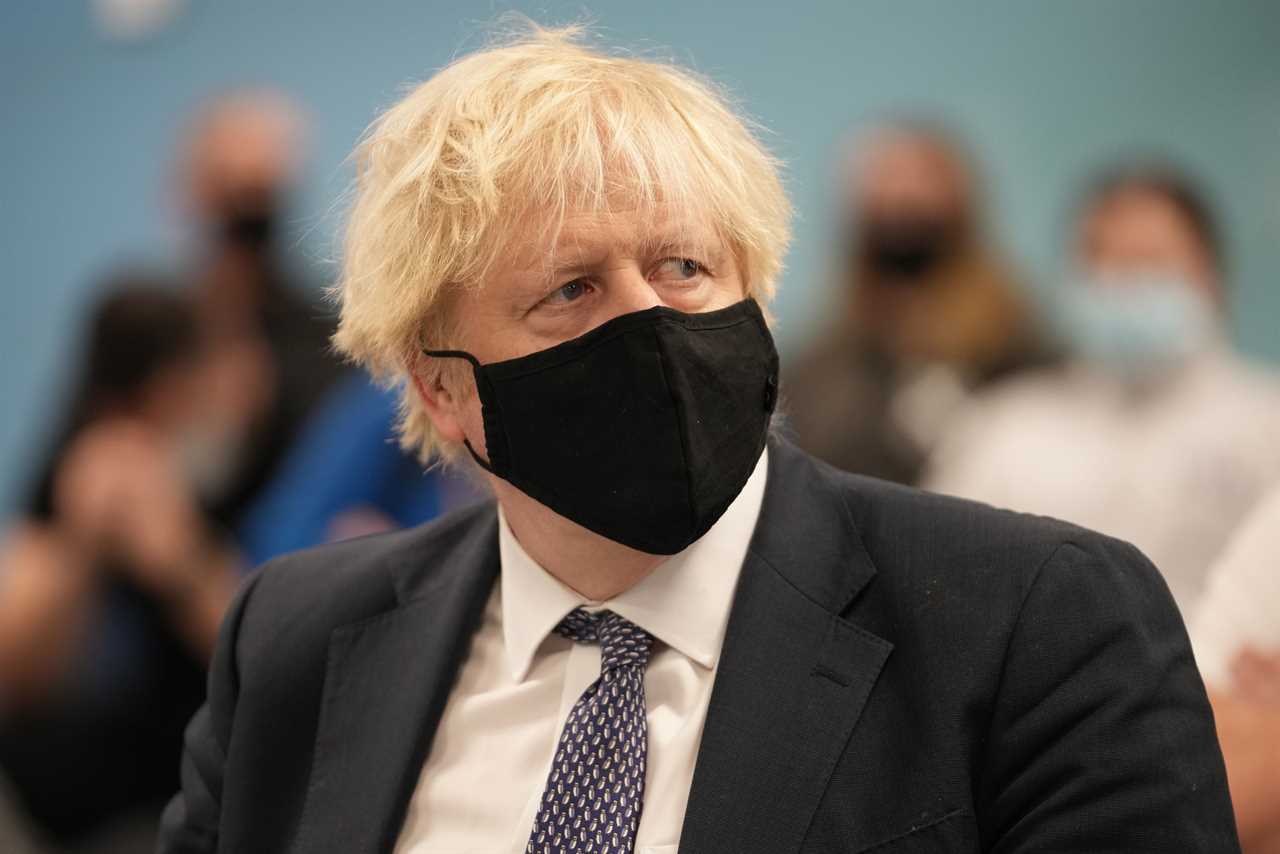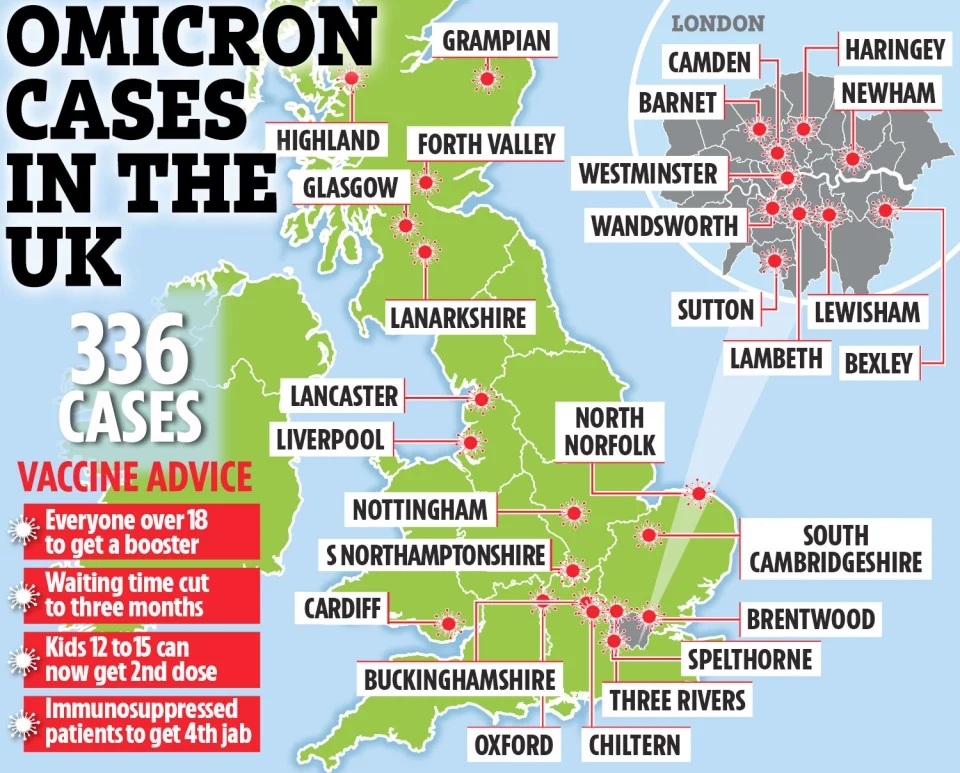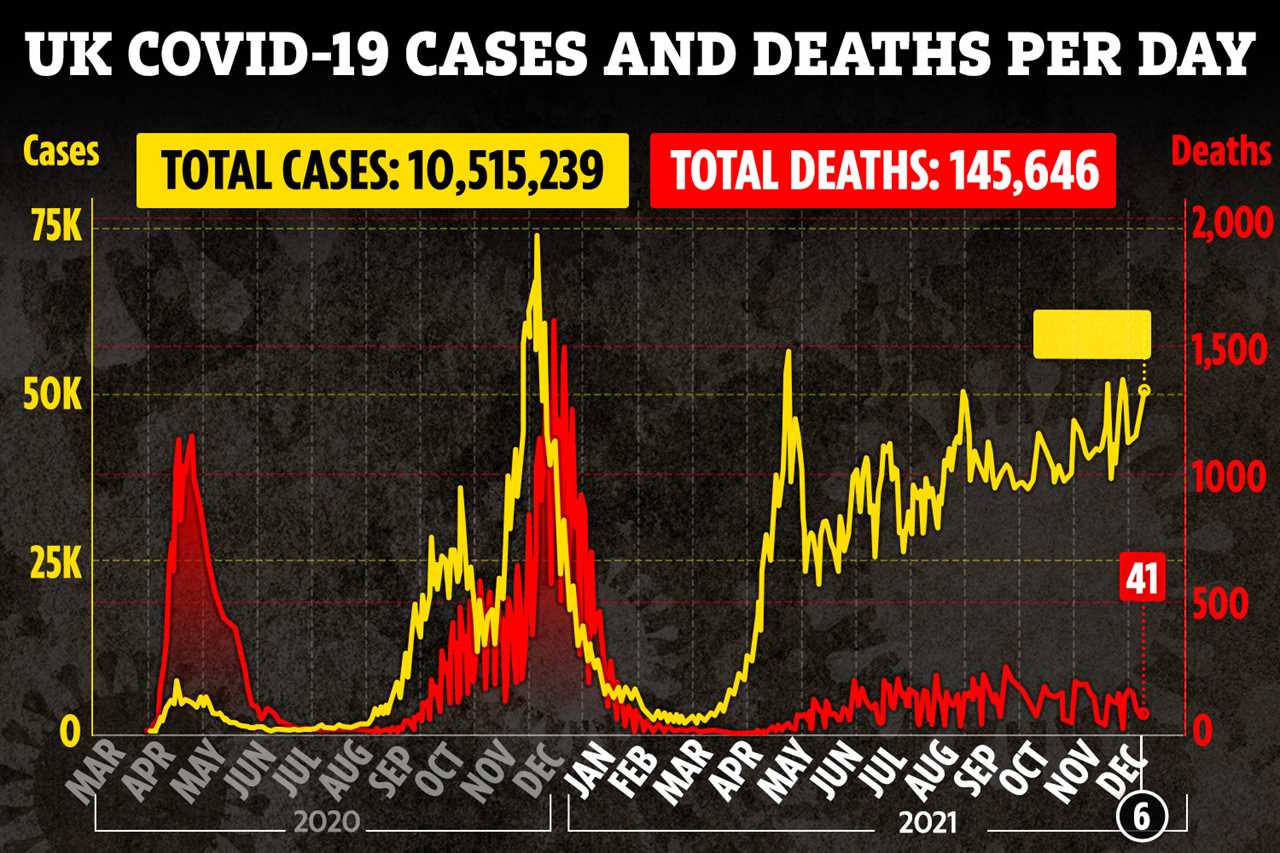BRITS could be slapped with fresh restrictions “swiftly” to beat back Omicron, Downing Street warned again today.
Boris Johnson this morning told his senior ministers the mutation was more infectious than the Delta strain that ripped like wildfire last summer.


The PM still insists that https://www.thesun.co.uk/news/16962509/covid-restrictions-plan-b-working-from-home-omicron/Christmas is ON and that people shouldn’t be canning parties and nativities.
He is rejecting calls from gloomy scientists to launch Plan B measures including compulsory working from home and vaccine passports.
But Mr Johnson’s spokesman said this morning: “We are able to move relatively swiftly if required.”
He said that logistical work to introduce vaccine passports had already been carried out by officials.
The PM hopes to reveal any new restrictions by December 16 before MPs break up for Christmas so Parliament can be consulted.
Any fresh restrictions would likely cause fury among lockdown-hating MPs who could rebel – but won’t block them.
At a sobering Cabinet meeting he alerted his top team to the likely threat of Omicron.
While it was “too early” to get the full picture “early indications were that it was more transmissible than Delta.”
Experts have revealed that cases of Omicron are likely to be five times higher than those 246 confirmed.
Yesterday Health Secretary Sajid Javid confirmed the variant was now spreading in communities.
He said cases of the strain were doubling every three days and will likely become the dominant strain.
Professor Tim Spector said that in around 10 days’ time the UK could have more cases of Omicron than some countries it had put on the travel red list.
Professor Andrew Pollard, a NERVTAG adviser, told ministers to implement Plan B now.
He told Times Radio:”I get a sense of deja-vu in terms of we can see that the indicators that we have so far suggests that there will be a substantial wave which will also be associated with an increase in hospitalisations.
“We have an NHS that is already finding it very, very difficult to cope. Lots and lots of operations etc being cancelled for people who’ve already waited for a long time.
“That’s likely to get worse. It seems that we kind of have to wait for things to get very, obviously worse, before we’ll move into Plan B.
“And I do wonder, you know, we’ve got a plan B for these sorts of situations, why we’re being quite so reluctant to enact it.”







